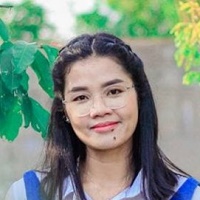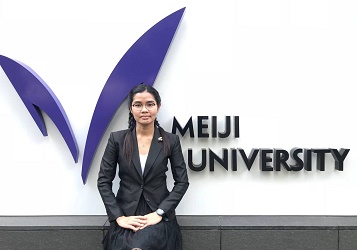Q.1: During the past one month, is the confirmed cases of COVID-19 in your country increasing, or decreasing?
From a few months ago to September 22nd, 2021, the daily number of infected people confirmed in Cambodia was around 800 cases. However, from September 23rd, 2021 until the day I am writing this, the daily number of infected people tend to decrease to around 200 cases.
Q.2: In past several months, did your government declared and introduced strict measures to restrict movements or actions of general public? If yes, what were they?
We did have a few restrictions from the past several months as the following:
- In April, the Government of Cambodia had declared a lockdown to the whole country for two weeks and then expanded to other several weeks. By the time of our Khmer’s New Year celebration and during the lockdown, people were prohibited to travel across provinces. They were banned to have parties or celebrate any religious ceremonies. Every resort, recreation places, KTVs, walk-in restaurant, etc. were all closed, especially in Phnom Penh City. There were divided zones for people in Phnom Penh City to Red-Zone, Orange-Zone, and Yellow-Zone. The colors of the zone have different restrictions to the people for traveling and doing any public activities.
- From June, the lockdown was done in some provinces by some local governments with the same restrictions we had during our whole country’s lockdown.
- By now, people have to wear masks anywhere they go or they will be fined by the police.
Q.3: How have your life and work changed because of COVID-19 pandemic?
My life has changed a bit from COVID-19 such as instead of going out with my family and friends during the weekends, I mostly stay at home. I have to wear a mask most of the time and cannot stay close to other people. This was a bit irritating at first, but now I am totally fine.
For my work, it has changed a lot. Even though I have to go to work every day, meetings, seminars, conferences are mostly now on a virtual base. We have included more technologies in our work. Our communication has increased to via social media when before we only relied on hard copies. This is easier and saves a lot. Moreover, we have changed more off-line to on-line service deliveries to our citizens. This is challenging because we need to spend more time to learn while we are still busy dealing some off-line services.
Q4: What do you think are necessary for the society of your country to prepare for / to deal with another pandemic expected to happen in the future?
I think well preparation is good to respond to any disasters, but it depends on available resources. For Cambodia, we are a small country with limited resources. The pandemic has cost us so much for our health sector. Therefore, even though we have a much better health system than today, we still cannot beat the pandemic easily. But building stronger human resources must be the most crucial step for Cambodia to deal with any disasters.
In general, and personally, there are three steps we should do in the future to respond to such a disaster. First, the government should make all the citizens have full awareness of what is happening. Make the citizens believe that it exists at the first stage. Then explain why and how does it happen? Finally, have qualified research teams to find the solutions to get rid of it. If we still cannot get rid of it, we may learn to live with it as well.
Q.5: How are you taking advantage of the experience with Meiji University? What do you think are the "growth" or "progress" that you made through the 2-year study?
I have utilized many things I learned from Meiji University to apply in my daily and working life. First of all, with my two years experienced staying in Japan with a tough schedule at school, I have learned to manage my schedule well. I continue to use book planners to write down all the activities I need to do over the weeks and months. My life seems much easier and I can balance time between work and family. Secondly, I have inspired my chief officer to turn our office room from a close to open space. This inspiration is from my observation during the university's field trips I had with Meiji University at some government offices in Japan. With the open office space, now we are more convenient to communicate better and faster with each other. Furthermore, I have utilized negotiation skills a lot in my office. As my office is a newly created one, we have many things to discuss and decide in order to make our office moves forward. It requires a lot of negotiation competence. From the lessons and practices I got from the Negotiation class, I facilitate and manage to achieve many deals with other provincial departments in my province. Our change challenges have decreased from time to time with a more understanding and corporation between all relevant parties. We work together and support each other well now. These are a few examples I would like to share from what I have gained from Meiji University. Attending this university is one of my life-changing experiences. Thank you, Meiji.




